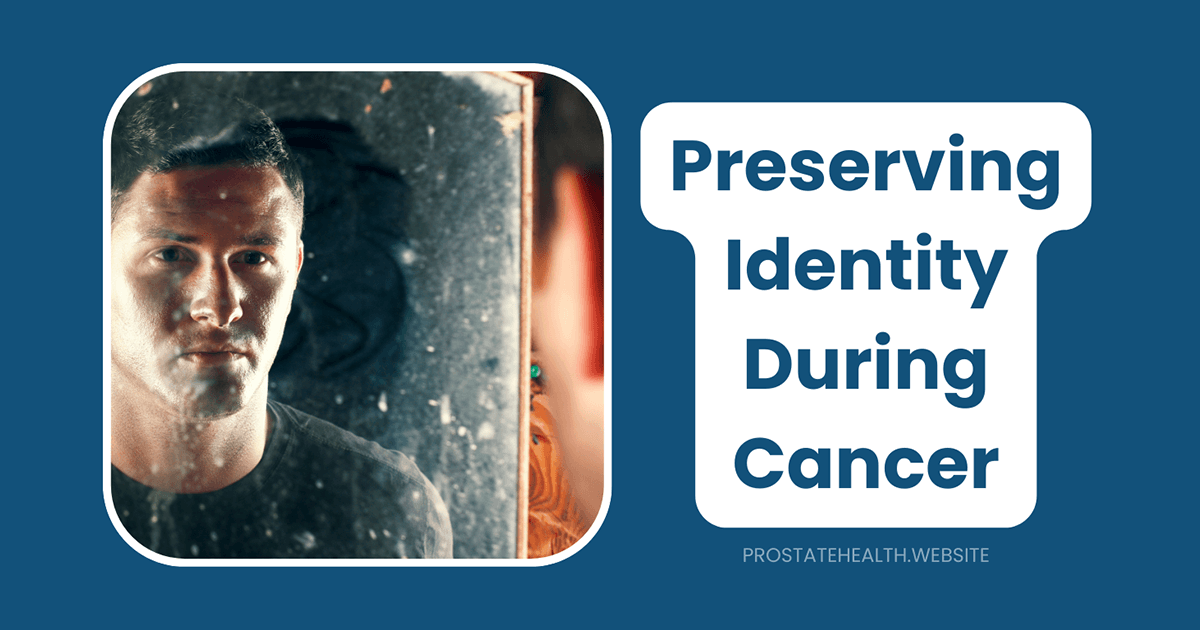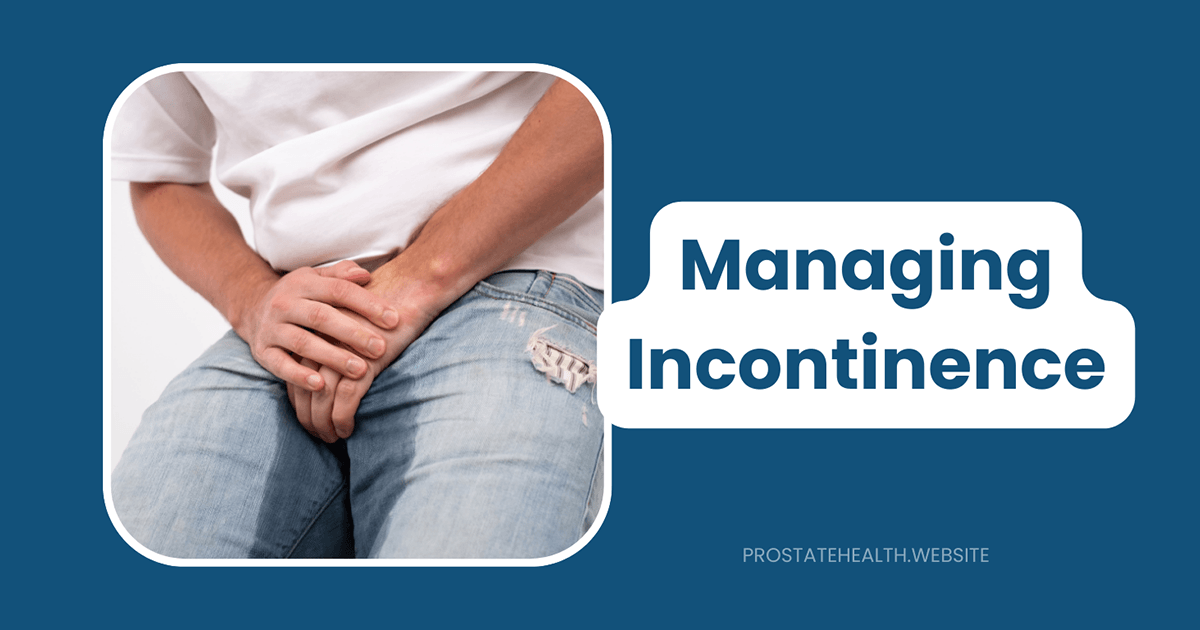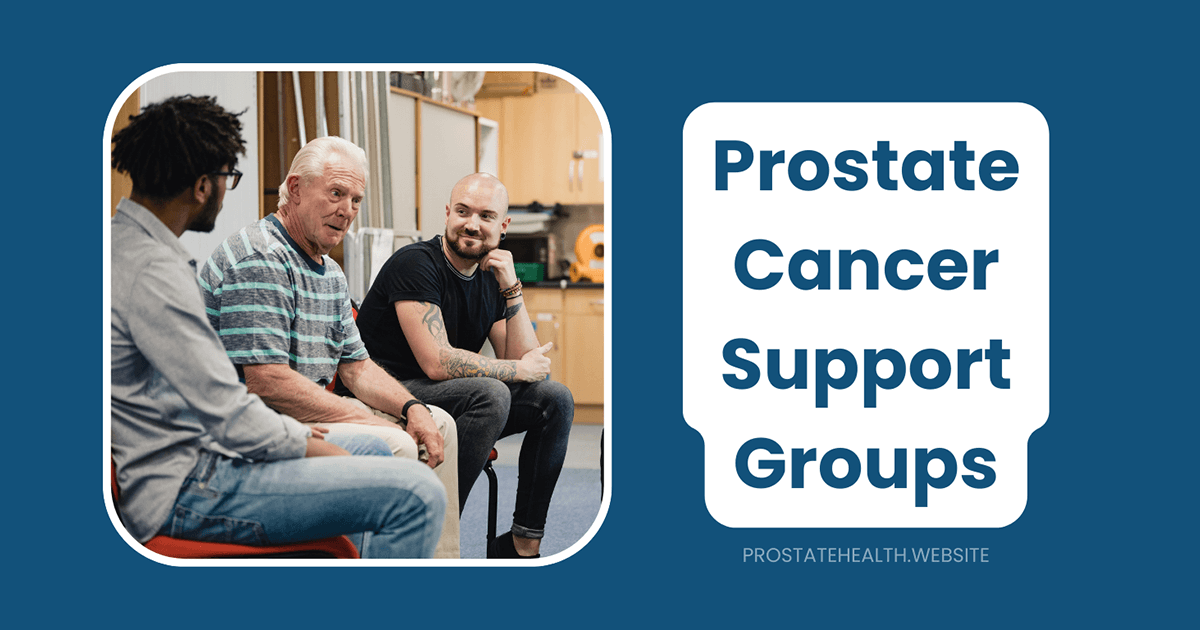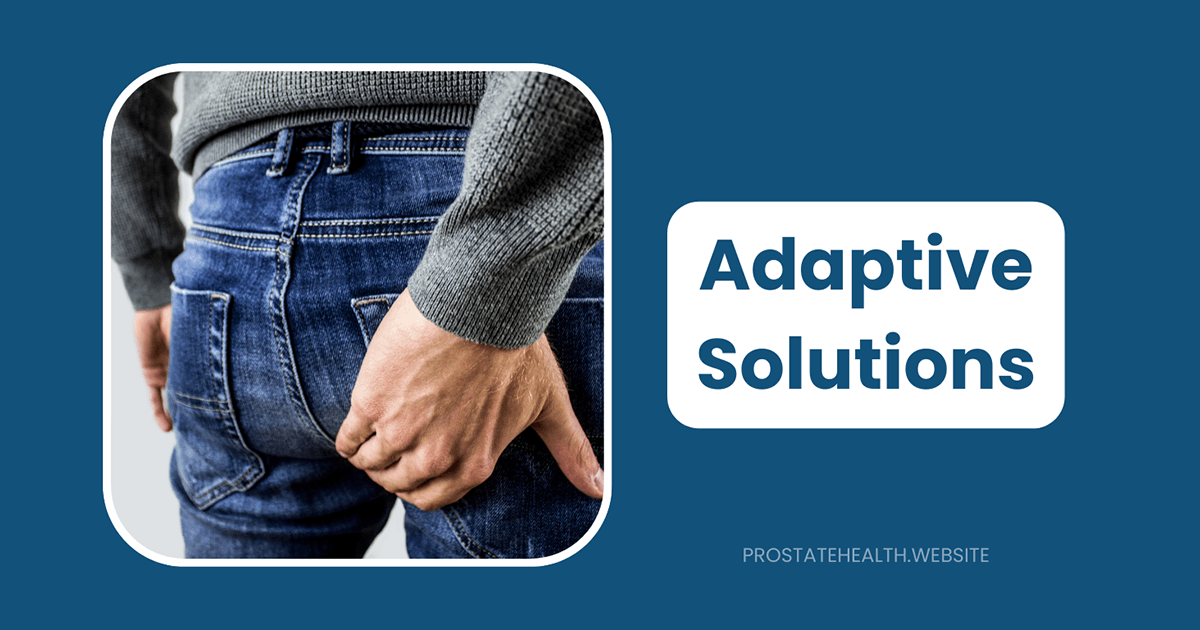Maintaining Your Identity Beyond Your Diagnosis

When Paul received his prostate cancer diagnosis at 58, his first thought wasn’t about treatment options or survival rates. It was much more fundamental: “Who am I now?”
“Suddenly, I was a ‘cancer patient,'” he told me during one of our support group meetings. “People looked at me differently. I looked at myself differently. Everything I had used to define myself—my independence, my physical strength, my role as the family protector—seemed threatened. I wondered if I would ever feel like ‘me’ again.”
Paul’s experience resonates with countless men I’ve worked with over the years. A prostate cancer diagnosis doesn’t just challenge your physical health—it can shake the very foundation of how you see yourself. Research shows that up to 60% of men experience significant psychological distress during their cancer journey, much of it related to identity concerns.
Yet amid these challenges lies an opportunity for growth and rediscovery. This article explores how to maintain—and even strengthen—your core identity while navigating the prostate cancer journey. Because while cancer may be part of your story, it doesn’t have to become your entire narrative.
How Cancer Challenges Identity
Before discussing solutions, it’s important to understand how prostate cancer specifically challenges men’s sense of self:
The “Patient” Label
Research published in the Journal of Cancer Survivorship found that 36% of prostate cancer survivors still identify primarily as “patients” even years after treatment—significantly higher than survivors of other cancers. This persistent patient identity is associated with higher rates of depression and lower quality of life.
As Robert, 62, described it: “The moment you’re diagnosed, you join a new club you never wanted to be part of. Suddenly you’re a ‘prostate cancer patient,’ and that label can overshadow everything else about you.”
Masculinity Challenges
For many men, prostate cancer strikes at the core of masculine identity:
- Sexual function changes: Treatments can affect erectile function and sexual performance
- Physical changes: Hormone therapy may cause weight gain, muscle loss, or breast enlargement
- Urinary issues: Incontinence can challenge feelings of control and dignity
- Role adjustments: Temporary inability to work or engage in physical activities
A comprehensive review of 68 studies found that changes in sexual function were particularly threatening to men’s sense of masculinity, with many reporting feelings of “diminished manhood” after treatment.
Social Identity Shifts
Cancer can also transform how others see you and relate to you:
- Unwanted sympathy: Being treated as fragile or pitied
- Role reversals: Shifting from caregiver to care recipient
- Workplace changes: Adjustments in responsibilities or colleagues’ perceptions
- Social withdrawal: Discomfort in previously enjoyable social settings
“The hardest part was how some friends started treating me like I was made of glass,” shares Thomas, 65. “Their concern was well-intentioned, but it made me feel like I’d lost the strong, capable identity I’d built over decades.”
The “Suspended Identity” Phenomenon
Many men experience what sociologist Steve Buechler calls “suspended identity”—a feeling that your pre-cancer identity is on hold while you navigate treatment. This suspension can feel disorienting and lead to questions about whether you’ll ever fully return to your former self.
Strategies for Maintaining Your Core Identity
While cancer inevitably changes certain aspects of your life, research and experience suggest several effective strategies for maintaining your essential sense of self:
1. Distinguish Between Your Diagnosis and Your Identity
A powerful first step is recognizing that having cancer is something that happened to you—not who you are:
- Practice identity statements: “I am a man who has prostate cancer” rather than “I am a cancer patient”
- List your roles and attributes: Remind yourself of the many aspects of your identity beyond your diagnosis
- Notice language patterns: Be mindful of how you describe yourself to others
“I made a conscious decision to introduce myself as ‘James, a teacher and grandfather who happens to be dealing with prostate cancer’ rather than leading with my diagnosis,” explains James, 67. “That small shift in language made a huge difference in how I saw myself and how others related to me.”
2. Maintain Meaningful Activities and Roles
Continuing involvement in activities that define you is crucial for identity preservation:
- Adapt valued activities: Find modified ways to engage in important pursuits
- Preserve professional identity: Stay connected to work in appropriate ways during treatment
- Continue family roles: Maintain involvement in family life, adapting responsibilities as needed
- Pursue hobbies: Make time for activities that bring joy and reinforce your sense of self
Research shows that men who maintain engagement in meaningful activities during and after treatment report stronger identity continuity and better psychological outcomes.
“I couldn’t coach my grandson’s baseball team during treatment, but I still attended every game and helped with strategy,” shares Michael, 59. “Finding ways to stay involved, even in a different capacity, helped me feel like myself during a time when so much was changing.”
3. Reframe Masculinity
Rather than abandoning masculine identity when faced with physical changes, many men successfully expand their definition of masculinity:
- Recognize diverse masculine strengths: Emphasize courage, resilience, wisdom, and emotional depth
- Challenge restrictive norms: Question limiting beliefs about what makes someone “a real man”
- Find masculine role models: Connect with men who demonstrate flexible, adaptive masculinity
- Embrace vulnerability as strength: Recognize that facing challenges openly requires courage
A study of coping strategies found that men who could flexibly reinterpret masculinity to include vulnerability and support-seeking showed better psychological adjustment after prostate cancer.
“I used to think being strong meant handling everything myself and never showing weakness,” admits Robert. “Through this cancer journey, I’ve learned that real strength includes knowing when to ask for help and being honest about struggles. That’s actually harder—and more courageous—than pretending everything’s fine.”
4. Harness Physical Activity
Exercise offers powerful benefits for identity maintenance during and after prostate cancer treatment:
- Regain physical confidence: Even modified exercise can reinforce a sense of physical capability
- Manage body changes: Exercise helps address weight gain and muscle loss from hormone therapy
- Experience mastery: Setting and achieving fitness goals reinforces self-efficacy
- Connect socially: Group activities provide community and normalized social interaction
Research published in 2022 found that men who maintained regular exercise during prostate cancer treatment reported stronger masculine identity and better coping strategies than those who were inactive.
“When I started walking daily during treatment, it wasn’t just about physical health,” explains Thomas. “It was about proving to myself that I was still capable, still disciplined, still moving forward. Each mile was an affirmation that cancer hadn’t taken my essential self.”
5. Manage Visible Changes Strategically
For changes that affect appearance or function, developing practical management strategies helps maintain social identity and confidence:
- Adaptive clothing: For incontinence concerns, specialized undergarments and strategic clothing choices
- Planned outings: Mapping bathroom locations and timing activities around medication schedules
- Disclosure decisions: Thoughtfully choosing when, how, and with whom to discuss your condition
- Preparation phrases: Having ready responses for unexpected situations or questions
“I learned to plan ahead for social situations,” shares Paul. “Knowing where bathrooms were located, wearing dark pants that wouldn’t show potential leaks, and having a brief explanation ready if I needed to excuse myself—these practical strategies let me continue enjoying time with friends without constant worry.”
Relationships and Identity: The Social Dimension
Our identities are partly shaped by our relationships and how others see us. Managing these social dimensions is crucial for identity maintenance:
Educating Your Support Circle
Help those close to you understand how to support your identity needs:
- Express preferences: “I appreciate your concern, but I’d rather not discuss my treatment every time we meet”
- Suggest helpful approaches: “It helps me when you treat me normally rather than with special care”
- Recognize good intentions: Acknowledge that awkwardness often comes from genuine concern
- Lead by example: Demonstrate the balance of acknowledging your condition while not letting it dominate
“I had to gently retrain my wife,” admits James with a smile. “She started treating me like I might break, constantly asking how I felt. I finally told her that the best medicine was her treating me like her husband, not her patient. It took time, but we found our way back to our normal dynamic.”
Selective Disclosure
Thoughtfully deciding when and how to share your cancer experience helps maintain control over your social identity:
- Consider context: Different settings (work, social, family) may call for different approaches
- Assess relationships: Close friends may receive more details than acquaintances
- Timing matters: Choose moments when you have energy for potential questions
- Set boundaries: It’s okay to say, “I’d rather not discuss that right now”
“I decided to be open about my diagnosis with close friends and family, but at work, I shared only what was necessary,” explains Michael. “This selective approach let me maintain my professional identity while still getting support where I needed it most.”
Finding Community Without Being Defined by Cancer
Support groups and cancer communities offer valuable connection, but balance is important:
- Seek groups that emphasize living well: Look for communities focused on thriving, not just surviving
- Balance cancer and non-cancer social activities: Maintain friendships and activities unrelated to cancer
- Consider time-limited involvement: Some men benefit from intensive support initially, then reducing involvement as they adjust
- Give back: Mentoring newly diagnosed men can transform your patient experience into a strength
“My support group was essential during treatment,” shares Robert. “But I made sure to keep up with my weekly golf game too. Those four hours where cancer wasn’t mentioned once became sacred time for maintaining my pre-cancer identity.”
Professional and Purpose Identity
For many men, professional identity and sense of purpose are core to self-concept. Maintaining these aspects during the cancer journey requires intentional strategies:
Work Identity
If work is important to your identity, consider:
- Flexible arrangements: Explore options like remote work, flexible hours, or project-based contributions
- Meaningful involvement: Even if full duties aren’t possible, identify core contributions you can maintain
- Professional development: Continue learning and growing in your field when energy permits
- Colleague relationships: Maintain professional connections beyond discussions of your health
“I couldn’t handle full client loads during treatment, but I could still mentor junior attorneys,” shares Paul. “That role allowed me to contribute my expertise while accommodating my reduced energy. It preserved my identity as a respected professional during a vulnerable time.”
Finding Purpose Through the Experience
Many men discover that integrating their cancer experience into their sense of purpose actually strengthens their identity:
- Advocacy: Using your experience to improve care for others
- Mentoring: Supporting newly diagnosed men through their journey
- Research participation: Contributing to scientific advancement
- Storytelling: Sharing your experience to reduce stigma around men’s health
“Becoming a peer mentor for newly diagnosed men transformed how I viewed my cancer experience,” explains Thomas. “What felt like an identity threat became a unique qualification for making a difference. That shift from victim to guide was incredibly empowering.”
Psychological Approaches for Identity Integration
Beyond practical strategies, certain psychological approaches can help integrate your cancer experience into your identity in healthy ways:
Narrative Identity Work
How you tell the story of your cancer experience—to yourself and others—significantly impacts identity:
- Authorship: Take control of your cancer story rather than letting others define it
- Integration: Work toward a narrative that acknowledges cancer’s impact without letting it dominate
- Growth framing: Identify ways the experience has led to personal development
- Continuity emphasis: Highlight the threads of continuity in your life before, during, and after cancer
“Writing about my experience helped me make sense of it,” shares James. “I could see how the core values that defined me before cancer—resilience, family commitment, intellectual curiosity—were still present, just expressed in new ways.”
Acceptance and Commitment Approaches
Psychological flexibility helps navigate identity challenges:
- Values clarification: Identify what matters most to you, independent of cancer
- Mindful awareness: Notice thoughts about identity without becoming fused with them
- Committed action: Take steps aligned with your values even amid uncertainty
- Self-compassion: Treat yourself with the kindness you would offer a friend facing similar challenges
“Learning to observe my thoughts about ‘not being the man I was’ rather than believing them as absolute truth was transformative,” explains Robert. “I could acknowledge those thoughts while still choosing actions aligned with the husband, father, and man I want to be.”
Post-Traumatic Growth
Many men report that their cancer experience, while challenging, ultimately enhances their identity through:
- Deeper appreciation for life: Finding greater meaning in everyday experiences
- Strengthened relationships: Developing more authentic connections
- Spiritual development: Deepening or discovering spiritual dimensions of identity
- Recognition of personal strength: Discovering resilience you didn’t know you had
- New possibilities: Opening doors to unexpected paths and purposes
“Before cancer, I defined myself largely by career achievements,” Michael reflects. “Now, while my work is still important, I have a much richer sense of identity that includes being a mentor, a more present husband and father, and someone who appreciates each day in a way I never did before.”
When to Seek Additional Support
While many men successfully navigate identity challenges independently or with peer support, professional help can be valuable when:
- Identity distress persists: Ongoing struggle with who you are after cancer
- Depression symptoms emerge: Persistent sadness, hopelessness, or loss of interest
- Relationship conflicts increase: Tensions related to role changes or communication
- Functional impairment occurs: Difficulty engaging in important life domains due to identity concerns
Options for support include:
- Individual therapy: Particularly approaches like Acceptance and Commitment Therapy (ACT) or narrative therapy
- Couples counseling: Helpful for navigating relationship dimension of identity changes
- Specialized support groups: Some groups focus specifically on masculinity and identity after cancer
- Psycho-oncology services: Many cancer centers offer psychological support tailored to cancer-related concerns
“I thought therapy was for people who couldn’t handle their problems,” admits Paul. “But working with someone who understood the psychological impact of cancer helped me integrate this experience into my life story without letting it define me. It was one of the best decisions I made during my recovery.”
Resources for Identity Support
These resources can provide additional support for maintaining identity during and after prostate cancer:
Books
- “Man to Man: Surviving Prostate Cancer” by Michael Korda
- “How to Be a Man (Whatever That Means): Lessons in Modern Masculinity from a Questionable Source” by James Breakwell
- “Picking Up the Pieces: Moving Forward After Surviving Cancer” by Sherri Magee and Kathy Scalzo
Organizations
- ZERO – The End of Prostate Cancer: Offers peer support programs connecting survivors
- Us TOO International: Provides support groups focused on living well after prostate cancer
- Cancer Support Community: Offers programs addressing the emotional and social impact of cancer
Online Communities
- Prostate Cancer Foundation’s Community Conversations
- Cancer Survivors Network
- Man Up to Cancer: A community specifically focused on masculine identity and cancer
A Personal Note: Finding Yourself Again
When I was diagnosed with prostate cancer at 47, I experienced what many men describe—a sense that my identity had been hijacked by cancer. Medical appointments, treatment decisions, and physical changes dominated my attention. The roles and activities that had defined me—mentor, athlete, community leader—seemed suddenly secondary to my new identity as a “cancer patient.”
What I’ve learned, both through my own journey and through supporting hundreds of men navigating similar terrain, is that while cancer inevitably changes you, it doesn’t have to erase the core of who you are. In fact, many men discover that the process of reclaiming and rebuilding identity after cancer leads to a more authentic, values-aligned sense of self.
As James eloquently put it in one of our support group meetings: “Cancer tried to reduce me to a diagnosis, a set of symptoms, a collection of side effects. My job was to remember—and remind others—that I am still the sum of my experiences, relationships, values, and dreams. Cancer is just one chapter in a much longer story.”
Your diagnosis is part of your life story—but it’s not the whole story. By implementing the strategies we’ve discussed, you can maintain your essential identity while integrating this experience into a life narrative that remains fundamentally yours.
How has prostate cancer affected your sense of identity? What strategies have helped you maintain or reclaim your sense of self? Share your experiences in the comments below to help other men navigating this journey.






